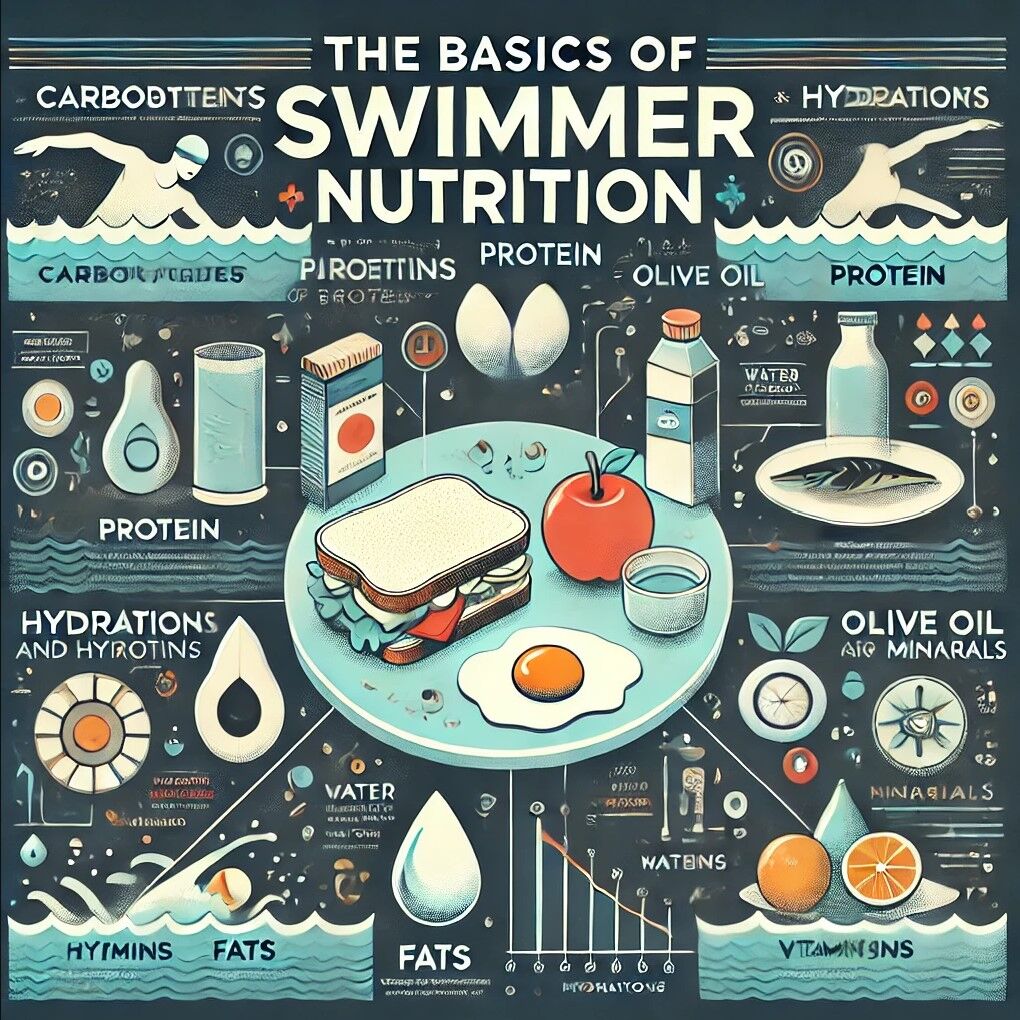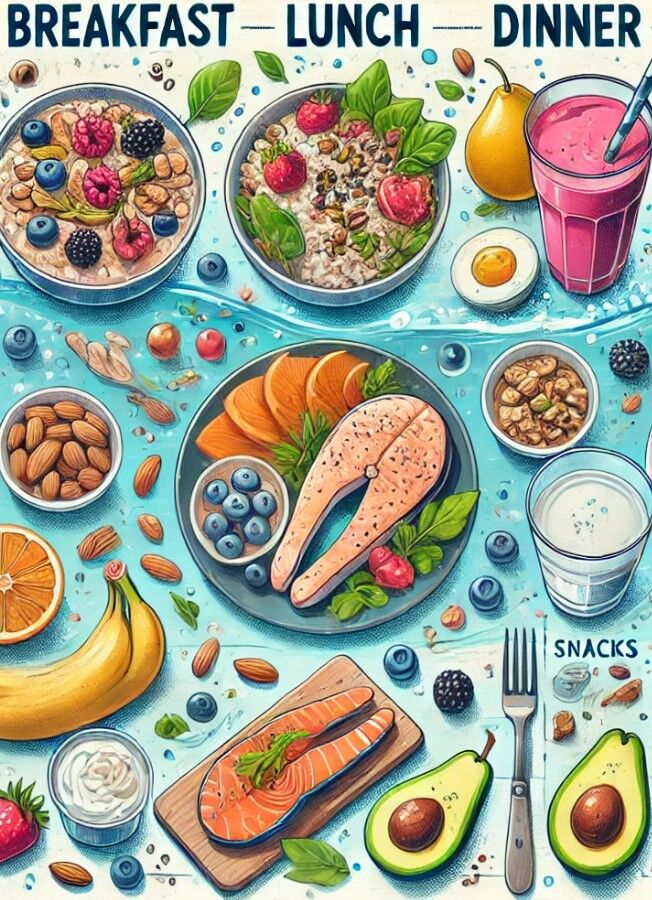Nutrition
Every swimmer's nutritional needs are unique, influenced by factors such as age, gender, body composition, training intensity, and personal health. This information is provided as a general reference. For personalized advice, consult a registered dietitian or nutrition professional experienced in sports nutrition.
The Basics of Swimmer Nutrition
Carbohydrates: The primary energy source for swimmers. Include whole grains, fruits, vegetables, and legumes in your meals to provide sustained energy.
Protein: Essential for muscle repair and recovery. Incorporate lean meats, fish, eggs, dairy, tofu, beans, and nuts into your diet.
Fats: A valuable energy source during prolonged activity. Focus on healthy fats like those from avocados, nuts, seeds, and fish.
Hydration: Dehydration can significantly impact performance. Drink water throughout the day and consider sports drinks during long training sessions to replenish electrolytes.
Vitamins and Minerals: Consume a variety of fruits and vegetables daily to meet your micronutrient needs, supporting energy production, immunity, and recovery.

How Often Should Swimmers Eat?
Swimmers have high energy demands, and eating at regular intervals helps maintain energy levels, prevent fatigue, and optimize recovery. A well-timed eating schedule for swimmers could look like this:
- Breakfast: Start the day with a balanced meal to replenish energy stores after an overnight fast. This is especially important if training occurs early in the morning.
- Mid-Morning Snack: A light snack can keep energy levels stable between meals. Examples: a piece of fruit, yogurt, or a granola bar.
- Lunch: A well-rounded meal with carbohydrates, protein, and healthy fats to sustain energy for afternoon activities or training.
- Afternoon Snack: Especially important if training follows shortly. Choose easy-to-digest options like a smoothie, a banana, or crackers with cheese.
- Pre-Training Snack: Before evening practice, a snack (like a banana, fruit smoothie, applesauce pouch, granola bar) 30 minutes prior to training for quick energy.
- Post-Training Snack: After evening practice, a recovery snack (like chocolate milk or a protein shake) within 30 minutes of finishing can enhance recovery.
- Dinner: Include a good mix of carbs and protein to replenish glycogen stores and support muscle repair.
- Bedtime Snack: For swimmers with late practices or high-calorie needs, a small snack before bed (e.g., a handful of nuts or a glass of milk) can help maintain energy for the next day.
Relative Energy Deficiency in Sport (RED-S)
Relative Energy Deficiency in Sport (RED-S) occurs when an athlete's energy intake is insufficient to meet the demands of training and daily activities. This energy imbalance can negatively impact performance, recovery, growth, and overall health. Common consequences include fatigue, increased injury risk, impaired bone health, and hormonal disruptions.
RED-S can affect athletes of all ages and levels. Awareness, proper nutrition, and adequate recovery are essential to prevent and address this condition. Athletes, coaches, and support teams are encouraged to foster open discussions and seek guidance from qualified professionals, such as sports nutritionists or medical practitioners, to ensure optimal health and performance. Prioritizing health is key to long-term success in sport.
Meal Ideas for Swimmers
Pre-Workout Meals:
- Banana with peanut butter
- Whole-grain toast with honey
- Low-fat yogurt with berries
Post-Workout Recovery (within 30 minutes):
- Chocolate milk
- Protein smoothie with banana and spinach
- Turkey sandwich on whole-grain bread
Daily Balanced Meal Example:
- Grilled salmon, quinoa, and steamed broccoli with a side of mixed fruit

Special Considerations for Swim Meets
- Pre-Event Snacks: Pack quick, easily digestible options like applesauce, granola bars, or rice cakes.
- During the Meet: Stay hydrated and snack on trail mix, dried fruit, or energy gels.
- Post-Meet Meal: Aim for a balanced meal with protein, carbs, and fats to support recovery.
Recommended Resources
For detailed guidance, exercise demos, and tailored programs, check out these trusted resources:
By prioritizing proper nutrition and following a consistent eating schedule, swimmers can maintain energy levels, maximize training efforts, and recover effectively. If you have specific dietary needs or concerns, consult a registered dietitian with experience in sports nutrition.